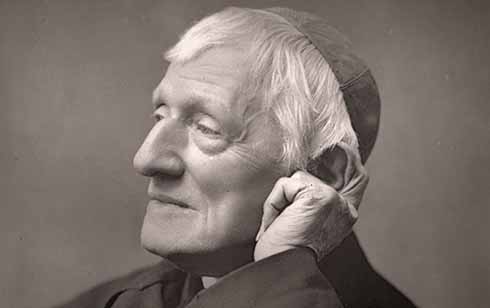 When we name someone a saint for our times, we usually say more about ourselves and our judgment of our times than about the saint.
When we name someone a saint for our times, we usually say more about ourselves and our judgment of our times than about the saint.
That said, in this time of the personal, social and economic uncertainty introduced by coronavirus and the breakdown of political co-operation, strident public controversy, economic and social uncertainty and fear for our health, St John Henry Newman makes a strong claim. St John Henry Newman, whose feast day is 11 August, became a Catholic Cardinal, of course, but perhaps his significance for our day is best illustrated by his earlier life as an Anglican priest.
SERIOUS ABOUT HIS FAITH
By the end of 1832 Newman had come to a turning point in his life. He had just turned 30, had been an Anglican priest for six years, and had engaged in a struggle for the heart of the Anglican church both in the life of his university college and in the nation at large. By then he was already known for the quality of his thought and writing. He was serious about faith and the tradition he had inherited. But his attempt to define in religious terms the responsibilities of the tutors at his College had ended in his resignation from the college, and the Church as a whole also seemed to be moving in the wrong direction.
During the year he had taken time to read his way through the Latin and Greek Fathers of the Church, and had just joined friends on a tour of the Mediterranean. In Sicily he fell ill with fever and emerged from his illness with a conviction that he was called back to England to continue his struggle in the Church of England, lead where it may. While the ship due to take him on the first stage of his return to England lay becalmed off the coast of Sicily, he wrote the hymn for which he is perhaps best known, Lead kindly light.
UNCERTAINTY OF THE WORLD
Trapped in a ship that was not going anywhere, Newman brought together in the hymn his sense of calling and his uncertainty about his times and his own future. In the first verse he describes the uncertainty and dangers of the world, and then turns away from the quest for certainty about the future to trust in God’s guidance on the journey.
Lead, Kindly Light, amidst th'encircling gloom,
Lead Thou me on!
The night is dark, and I am far from home,
Lead Thou me on!
Keep Thou my feet; I do not ask to see
The distant scene; one step enough for me.
Newman could never have imagined his future path: from initial struggle for the soul of the Anglican Church to reception in the Catholic where he was made a Cardinal. Nor could he have imagined that he would live in a world in which the shaping trends of thought were not religious, and where the serious conversations lay between believers and non-believers. In the face of a world that celebrated individual choice and trust in science as an adequate guide to human choice, his own movement beyond an earlier confidence in which he said, ‘I loved to choose and see my path’ to a trust accompanied by respect for knowledge and for the depth of the tradition which he had inherited, offered a serious alternative.
NEWMAN’S IMPORTANCE
That is why Newman is important in our world today. It is also darkened by an uncertainty that challenges the certainties nurtured in the thought of his day. The coronavirus, a simple being representing a stage of evolution that lay outside Darwin’s capacity to imagine, has challenged our understanding, our technology, our economic structures and our organisation of society.
It has emphasised the need for human depth, for serious engagement with our inherited wisdom, for strong communities, and for trust that can accept uncertainty and carry us through it.
Image: Getty Images